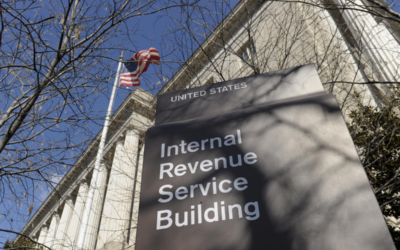In the context of IRS collections, the Statute of limitations is typically 10 years from the date the tax is assessed. This means that the IRS has a 10-year window to collect on tax debts from the date of assessment.
However, the collection period be extended under certain circumstances. For example, if you enter into an installment agreement with the IRS, the statute is extended for the duration of the agreement plus 30 days. Similarly, if you file for bankruptcy, the statute is extended for the period of the bankruptcy proceedings plus six months.
Origins of the Statute of Limitations
The concept of a Statute of Limitations is not unique to tax law. It has its roots in Roman law and has been a part of legal systems around the world for centuries. The idea behind it is to ensure fairness in legal proceedings by preventing the indefinite threat of litigation.
In the context of IRS collections, the Statute of Limitations serves a similar purpose. It provides a sense of finality to tax matters and prevents the IRS from pursuing tax debts indefinitely. This ensures that taxpayers have a clear understanding of their liabilities and can plan their financial affairs accordingly.
Understanding the 10-Year Collection Period
The 10-year collection period begins on the date the IRS assesses your tax liability and ends on the collection statute expiration date, also referred to as the CSED date. The date of assessment is typically the date you filed your tax return or the date the IRS made a substitute return for you.
There are several actions that can extend the 10-year period, such as filing for bankruptcy, submitting an offer in compromise, or requesting a collection due process hearing. These actions pause the clock on the 10-year period, extending the time the IRS has to collect on the debt.
Exceptions to the Statute of Limitations
While the Statute of Limitations provides a general rule for the collection of tax debts, there are several exceptions to this rule. Understanding these exceptions is crucial for managing your tax liabilities effectively.
Some of the most common exceptions include situations where the taxpayer agrees to extend the statute, where the taxpayer files for bankruptcy, or where the taxpayer leaves the country for a significant period. Each of these situations can extend the 10-year collection period, giving the IRS more time to collect on the debt.
Agreement to Extend the Statute
In some cases, the IRS may ask you to agree to extend the Statute of Limitations. This is typically done when the IRS needs more time to assess or collect a tax. If you agree to this extension, it will be documented on Form 900, Tax Collection Waiver.
It’s important to note that you have the right to refuse to extend the statute. However, doing so may result in the IRS taking more aggressive collection actions to secure the debt before the statute expires.
Bankruptcy Proceedings
If you file for bankruptcy, the Statute of Limitations on IRS collections is put on hold. The clock stops on the day you file for bankruptcy and doesn’t start again until six months after the bankruptcy case is closed. This can significantly extend the 10-year collection period.
It’s also worth noting that certain tax debts are not dischargeable in bankruptcy. This means that even if you file for bankruptcy, you may still owe these taxes after your bankruptcy case is closed.
Impact of the Statute of Limitations on Taxpayers
The Statute of Limitations provides a sense of finality to tax matters and gives taxpayers a clear understanding of their liabilities. However, it also presents certain challenges and considerations that taxpayers need to be aware of.
One of the key considerations is the potential for the statute to be extended. As mentioned earlier, certain actions can pause the clock on the 10-year collection period, extending the time the IRS has to collect on the debt. This can create uncertainty and make it difficult for taxpayers to plan their financial affairs.
Conclusion
The Statute of Limitations is a crucial concept in the realm of IRS Collections. It sets a time limit for the IRS to collect taxes owed by individuals or businesses, providing a sense of finality to tax matters. However, it also presents certain challenges and considerations that taxpayers need to be aware of.
Understanding the intricacies of this statute can be the difference between financial freedom and a lifetime of debt. Therefore, it’s crucial for taxpayers to have a comprehensive understanding of this concept, its implications, and how it can impact their tax obligations.





